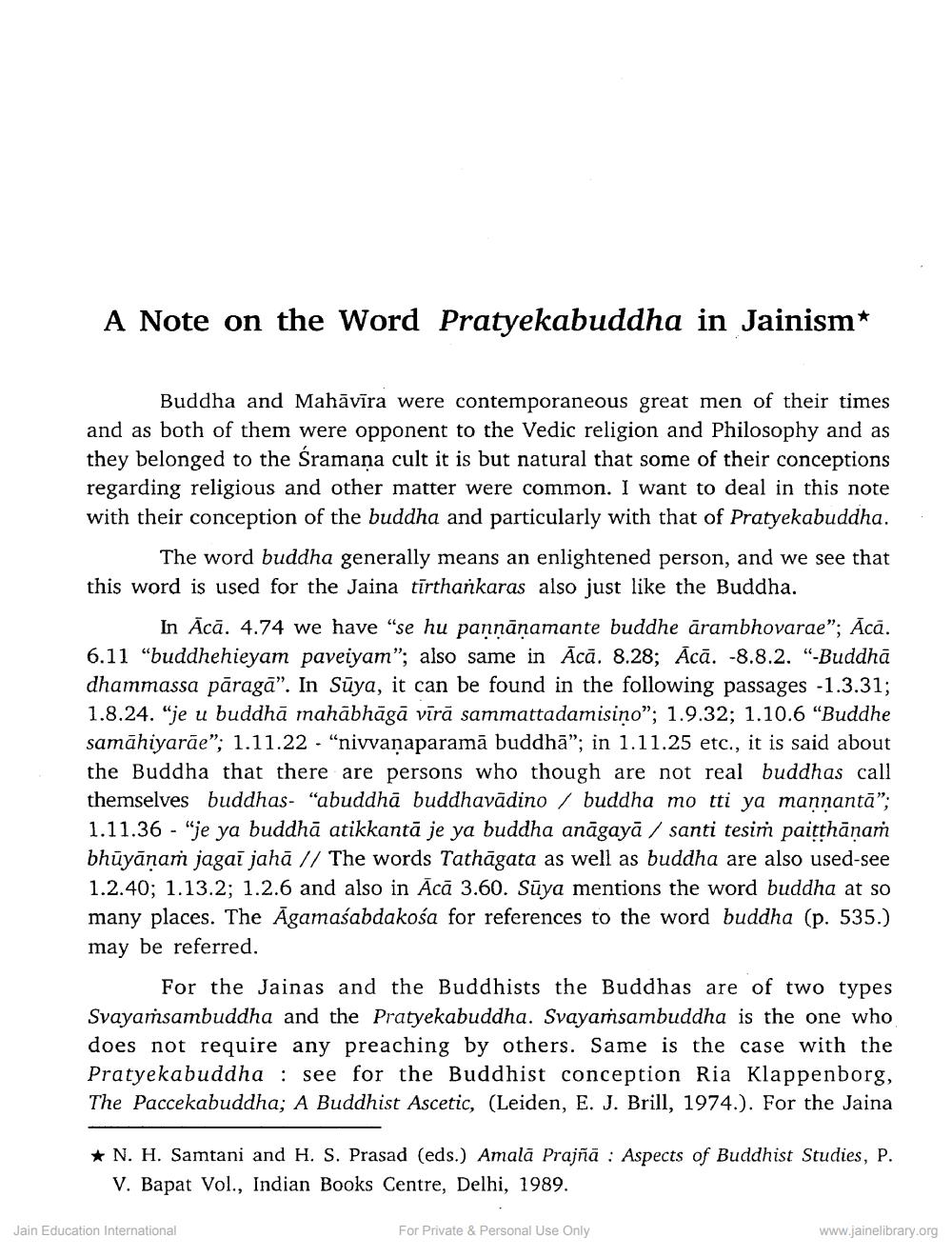________________
A Note on the Word Pratyekabuddha in Jainism
Buddha and Mahāvīra were contemporaneous great men of their times and as both of them were opponent to the Vedic religion and Philosophy and as they belonged to the Sramana cult it is but natural that some of their conceptions regarding religious and other matter were common. I want to deal in this note with their conception of the buddha and particularly with that of Pratyekabuddha.
The word buddha generally means an enlightened person, and we see that this word is used for the Jaina tīrthankaras also just like the Buddha.
In Ācā. 4.74 we have "se hu pannānamante buddhe ārambhovarae"; Ācā. 6.11 "buddhehieyam paveiyam"; also same in Ācā. 8.28; Acā. -8.8.2. "-Buddhā dhammassa pāragā". In Suya, it can be found in the following passages -1.3.31; 1.8.24. "je u buddhā mahābhāgā vīrā sammattadamisino"; 1.9.32; 1.10.6 "Buddhe samāhiyarāe"; 1.11.22 - "nivvanaparamā buddhā"; in 1.11.25 etc., it is said about the Buddha that there are persons who though are not real buddhas call themselves buddhas- "abuddhā buddhavādino / buddha mo tti ya mannantā"; 1.11.36 - "je ya buddhā atikkantā je ya buddha anāgayā / santi tesim paitthānań bhūyānam jagai jahā // The words Tathāgata as well as buddha are also used-see 1.2.40; 1.13.2; 1.2.6 and also in Acā 3.60. Sūya mentions the word buddha at so many places. The Agamaśabdakośa for references to the word buddha (p. 535.) may be referred.
For the Jainas and the Buddhists the Buddhas are of two types Svayaṁsambuddha and the Pratyekabuddha. Svayaṁsambuddha is the one who does not require any preaching by others. Same is the case with the Pratyekabuddha : see for the Buddhist conception Ria Klappenborg, The Paccekabuddha; A Buddhist Ascetic, (Leiden, E. J. Brill, 1974.). For the Jaina
* N. H. Samtani and H. S. Prasad (eds.) Amalā Prajñā : Aspects of Buddhist Studies, P.
V. Bapat Vol., Indian Books Centre, Delhi, 1989.
Jain Education International
For Private & Personal Use Only
www.jainelibrary.org




